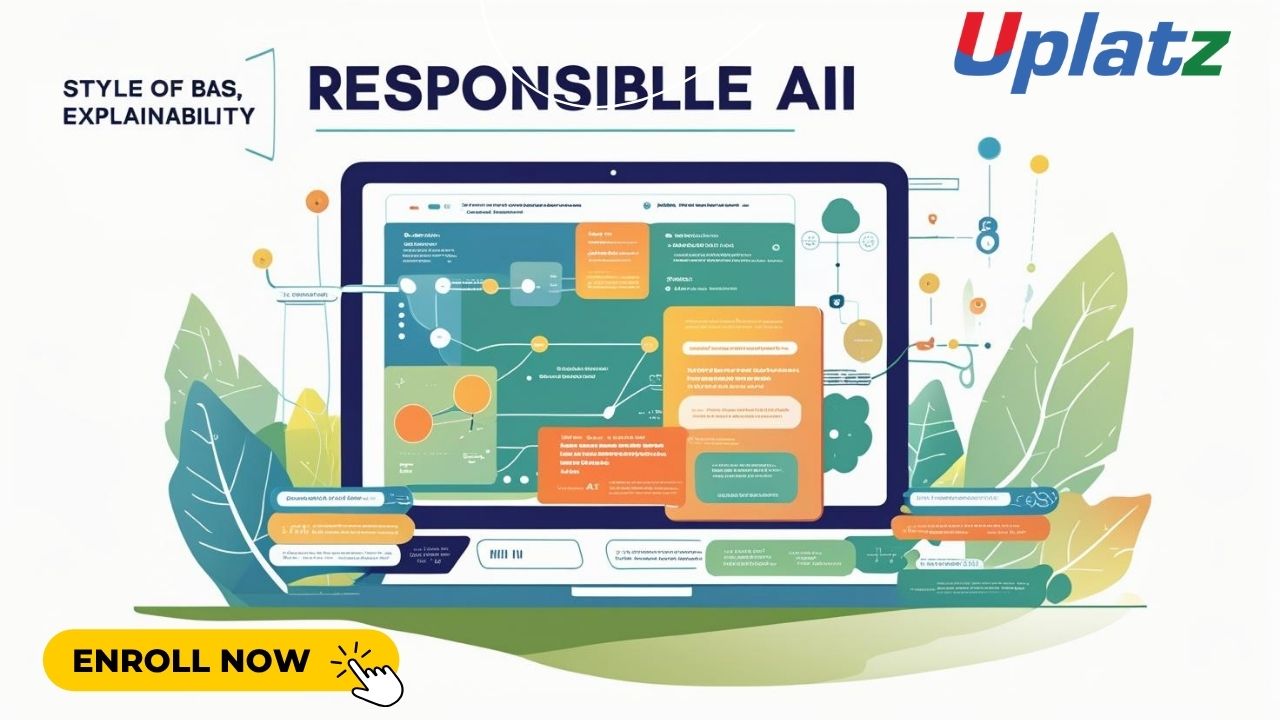Giskard
Detect bias, fix vulnerabilities, and ensure safe deployment of ML and LLM models using Giskard’s testing and validation toolkit.Preview Giskard course
Price Match Guarantee Full Lifetime Access Access on any Device Technical Support Secure Checkout Course Completion Certificate 95% Started a new career
BUY THIS COURSE (
95% Started a new career
BUY THIS COURSE (GBP 12 GBP 29 )-
 85% Got a pay increase and promotion
85% Got a pay increase and promotion
Students also bought -
-

- Responsible AI: Bias, Fairness, and Explainability in ML
- 10 Hours
- GBP 12
- 10 Learners
-

- AppDynamics Essentials
- 10 Hours
- GBP 12
- 410 Learners
-

- AI Workflow Automation using AgentOps & CrewAI
- 10 Hours
- GBP 12
- 10 Learners

Giskard provides automated tools for detecting bias, generating test cases, validating model robustness, and flagging security vulnerabilities. It works with tabular models, NLP classifiers, and LLMs, helping AI teams meet ethical AI standards, ensure reproducibility, and pass audits.
This course will guide you through setting up Giskard, testing ML pipelines, generating adversarial examples, and auditing your models before deployment. You’ll use Giskard’s UI and Python SDK to identify performance gaps, write custom tests, and explore vulnerabilities in your models.
Course/Topic 1 - Coming Soon
-
The videos for this course are being recorded freshly and should be available in a few days. Please contact info@uplatz.com to know the exact date of the release of this course.
-
Understand Giskard’s purpose in AI quality and governance
-
Install and configure Giskard with Python environments
-
Audit models for bias, performance issues, and fairness gaps
-
Generate adversarial test cases and validate robustness
-
Write custom model tests using the Giskard SDK
-
Use Giskard to test NLP models and tabular classifiers
-
Explore model explainability and decision traces
-
Identify vulnerabilities and assess risk levels
-
Integrate Giskard with ML pipelines and MLOps workflows
-
Prepare models for compliance, safety, and human review
Course Syllabus
-
Introduction to Ethical AI and Model Testing
-
What is Giskard? Overview and Use Cases
-
Installing Giskard: Local and Cloud Options
-
Exploring the Giskard Web UI and Python SDK
-
Automated Bias and Performance Testing
-
Generating and Reviewing Adversarial Examples
-
Writing Custom Tests and Evaluating Metrics
-
Testing Tabular Models for Fairness and Accuracy
-
NLP Model Validation with Giskard
-
Model Explainability and Traceability Tools
-
Integrating Giskard into CI/CD and MLOps
-
Case Study: Auditing a Sentiment Analysis Model
Upon successful completion of this course, you will receive a Uplatz Certificate of Completion validating your skills in ML model testing, validation, and bias auditing using Giskard. This certification confirms that you can confidently prepare models for ethical deployment by identifying issues related to fairness, safety, and performance. It is particularly valuable for professionals in data science, AI ethics, and quality assurance roles, signaling that you are equipped to meet the growing standards of AI governance.
As AI regulations tighten and public awareness of AI bias grows, organizations increasingly seek professionals who can ensure the trustworthiness of their models. Learning Giskard empowers you to step into high-impact roles focused on responsible AI.
You will be well-suited for roles like:
-
Ethical AI Engineer
-
Machine Learning QA Analyst
-
Model Governance Specialist
-
AI Fairness Auditor
-
Responsible AI Consultant
-
NLP Quality Assurance Engineer
These roles exist across sectors like banking, healthcare, HR tech, and public services—where fairness and explainability are not optional but required. With Giskard, you’ll be on the cutting edge of AI accountability.
-
What is Giskard used for?
Giskard is used to test and audit machine learning models for bias, robustness, and performance issues. -
How does Giskard help detect bias in ML models?
It provides automated bias scans and allows the generation of test cases to evaluate model behavior across groups. -
Can Giskard test both tabular and NLP models?
Yes, Giskard supports both model types with tailored validation tools. -
What are adversarial test cases in Giskard?
These are intentionally difficult inputs designed to probe model weaknesses and robustness. -
Is Giskard open-source?
Yes, it is an open-source framework for AI testing and auditing. -
How does Giskard integrate with CI/CD pipelines?
It can be automated through its SDK and integrated into existing MLOps workflows. -
What is the difference between Giskard and TruLens?
Giskard focuses on structured testing and fairness auditing, while TruLens focuses on LLM evaluation and feedback metrics. -
Can I write my own tests in Giskard?
Yes, Giskard supports writing custom Python-based tests for specific model behaviors. -
How does Giskard help with explainability?
It provides tools to inspect model decisions and understand why a model made a prediction. -
Why is model testing important in AI applications?
It ensures reliability, fairness, and safety before deploying models that affect real-world outcomes.









